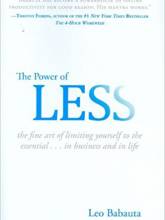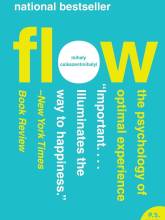Impact of Media on News
Does the media influence society? It does. You must have experienced the power of media to influence society yourself when they show a heartbreaking story and everyone rushes for help. It’s the media – mass media or social media – which give us opportunities to be proud of things. But the news readers - or listeners - are becoming increasingly indifferent to the news. The impact of media is gradually decreasing.
What’s the reason? Is it the general negativity in the news or the failure of news outlets to bring you information? Alain de Botton tries to find out.
He is an essayist with a particular interest in human culture. And Alain also is the founder of School of Life which focuses on giving new dimensions to education.
In the book – The News – he talks about the impact of media on culture and society and why news is losing its importance. Moreover, news agencies also fail to deliver appealing and engaging information. Alan says that it’s the poor presentation that’s decreasing the impact of media.
Listen to the summary at Blinkist or listen to the book at Audible.
Bring back context into the news

It was only a few years ago when people gathered around their TV or radio and listened to the stories delivered by the anchors. The anchors brought stories from around the world and (almost) everyone was listening.
But why isn’t it the case anymore? One of the reasons why the news lost its importance, is the lack of context.
The newspaper is no good either. Even interesting stories with knowledgeable content end up getting ignored because of dull or complex headlines.
They fail to engage readers by not presenting anything that the audience can relate to.
Well, let’s try with an example. “In the novel, Anna Karenina, a man is sitting in the waiting room of a lawyer’s office.” So what?
This line without any context looks unappealing. Only if you know why the man is waiting there, you will be eager to read the story further.
“He is there to divorce his wife who fell in love with someone else. And if he does so, the society will isolate the woman”. Compelled to read more?
That’s how the news should be – framed with context.
Draw attention to relevant issues

Another problem with the presentation of news is its non-relevance. People, simply are not interested in something because it happened in another corner of the world.
Unless the news provides value to them, no one likes to know what happens to Britain after Brexit.
But, people take an interest in plays such as Julius Caesar. The play is about Roman politics, but, it draws attention by bringing the universal issues in the light.
People feel it as a part of their life and thus, connect to it. No, we can’t expect every writer to be Shakespeare, but they can at least bring out some issues which can affect the average reader.
Read more: All About the Future Africa
Another such case is with the economic news section. Even the relevant news is wrapped in jargons and numbers which only the economists and investors get to understand.
Many freelance news reporters are trying to bring in interesting development from around the world. But all such news go hidden beneath the numbers and stats.
If only they could have some human touch, making those news relevant to readers, it would have more impact.
Make stories more humane

As said above, making the readers feel the news, can improve the impact of media on the people. One of the negative effects of newspaper and other media is that they make us judge people.
They bring the news of a person committing a crime, but won’t delve into the WHY?
One such incident happened with a doctor who was caught with pornographic images. He admitted that he saw those images and, thus was sent to prison.
But no one tried to find out the reason behind his doing or what he went through while in prison. That’s a negative media influence on human behavior, we only see what they want us to see.
If only they told, that his family left him after that and his career ruined, we could see the doctor as a human… and less of a monster.
And so is the case with consumerism. Some of the credit goes to the impact of media bias that consumerism is seen as evil but it not always is. All they do is portray that consumers buy products because they want.
But they don’t go in depth and understand the value something holds in someone’s life.
Bring in more of the good

In ancient Greece , people admired the actors for the talent they had. People got inspiration and tried to develop some skills and the good attributes of the actors in them.
, people admired the actors for the talent they had. People got inspiration and tried to develop some skills and the good attributes of the actors in them.
People praised the honesty of politicians and the discipline of the athletes. There are both positive and negative effects of media and these days; they show what sells.
Instead of the good deeds, you see what your favorite actor/actress eats, how they dress and where they are on vacation.
How many times has it happened that you see the news focused on their talents, how they prepare for a role and their achievements?
The world will be a better place if they show something inspirational rather than someone’s eating habits.
Make news less personalized again

And it’s not only the media houses that are at fault, but also technology. Google News, for example, allows users to set our preferences, the news they want to read.
But this feature not only undermines the impact of media but also gives the users a narrow-view of the world.
While people have access to what they care about, they don’t have the reach to all the news they need. You may be ignoring the story of successful people who can inspire you.
Read more: Essentialism or How to Achieve More
Or is it that you follow only the tragedies? Even if you have something of everything, you will end up having the one-sided view most of the time.
So, what you need is to put your caps on and –
- Find out the remarkable stories hidden beneath the dull and confusing headlines.
- Read more, even some things which don’t interest you in the first place.
- Find out the stories of passion, power, and ambition, and make them relevant in making you an informed human being.
The news isn’t boring, but it’s the poor presentation which makes it so. So, make your choice… wisely.
















